- Home
- Marie Ferrarella
Sundays Are for Murder Page 17
Sundays Are for Murder Read online
Page 17
Taking the receipt, Charley read the name, then held it up for Nick to see.
“John Smith.” She raised her eyes to the pawnshop owner. “Didn’t you think this was just a little suspicious?”
Valentine’s wide shoulders moved beneath his wrinkled shirt. “Hey, it’s a name. I just care if the merchandise is good.”
Out of the corner of her eye, she saw Bill shaking his head. When she looked at him, he promised, “It gets better.”
Charley frowned. She couldn’t say that she really liked the sound of that.
CHAPTER TWENTY-SIX
“A HOMELESS MAN?” Charley cried, looking at the shadowy figure on the surveillance tape. The back room of the pawnshop was an area the size of a Cracker Jack box on steroids and the smell of sweat and onions permeated the small space. Bill was forced to stand outside as she and Nick reviewed the tape with the pawnshop owner.
She turned to Valentine. “You bought jewelry from a homeless man?”
“I didn’t know he was homeless,” Valentine protested. “He gave me an address.”
Charley rolled her eyes. “Yeah. An address that would have put him smack in the middle of the Santa Ana River.”
In response, Valentine mutely spread his hands.
Exasperated, Charley crossed to Bill. She took a deep breath as she did so. The air might have been stale in the showroom area, but it was positively stifling in the back room.
“I want the tape taken back to the lab. Have Juarez freeze-frame that photo, blow it up and enhance it as much as possible.” She glanced at Nick. “Looks like we’re looking for a homeless man.” Together they headed for the door.
“Is he the one?” Valentine called out just as they pushed open the front door. His voice was eager, throbbing with curiosity. “Is he the serial killer? The guy who kills his victims on Sundays?”
Nick gave the man a cold look. Valentine’s interest bordered on ghoulish. He had no patience with people like that.
“You can read all about it in the newspaper,” he told the pawnbroker. Without thinking, he placed a hand to the small of Charley’s back, ushering her out. “He’s probably not the one, you know,” he told her once they’d cleared the shop.
Charley walked quickly to the curb where her car was parked. Quicker than she might have under ordinary circumstances. It bothered her that she was so aware of Nick each time he touched her, however innocently. She was going to have to deal with that sooner or later. Later sounded like a better option.
She forced herself to focus on Nick’s comment. “I know. But maybe ‘John Smith’ saw something. Or somebody. He had to have been at Rita Daly’s house around the same time as the killer.” After unlocking her door, she got in. “First order of business is finding the guy,” she told Nick as he got in on the passenger side.
LESS THAN TWO HOURS later, the twelve task force members, armed with a fuzzy black-and-white photo of “John Smith,” fanned out in and around Rita Daly’s neighborhood, as well as the vicinity of the pawnshop. They showed the photograph to everyone who passed by, as well as the residents in the area.
FOR TWO DAYS, the canvass went unrewarded. On the afternoon of the third day, a homeless woman known as Big Betty cackled with glee as she eyed the photograph Nick held in front of her. Of an indiscernible age ranging anywhere from late thirties to early fifties, Betty’s grimy face cracked into a series of creases that rallied around a huge grin.
“John Smith my ass,” she hooted. “That’s Wally.”
Catching Charley’s eye, Nick beckoned her over from the person she’d just stopped. “Wally?”
“Wally,” she said with finality.
Charley joined them in time to hear Betty’s answer. “Does Wally have a last name?” she asked.
Betty addressed her answer to Nick to whom she had obviously taken a fancy. “Not that I know of.”
“Do you know where we could find him?” Nick pressed.
The woman’s bloodshot eyes lit up and her grin widened. It didn’t take a mind reader to realize that Betty saw herself as holding a winning lottery ticket. “I might.”
Charley began to say something, but Nick held up his hand, stopping her. His eyes never left the homeless woman’s face. “What would it take for that ‘might’ to become a ‘yes’?”
Betty’s furrowed brow became a veritable map of crisscrossing lines. She pursed her lips as if that would help her think. “Gimme a minute.”
Charley exchanged glances with Nick, waiting. Wondering if the woman was a con artist who was playing them.
Finally, offering Nick a smile that lacked several teeth, Big Betty announced her price. The woman did not come cheap. She crossed her arms before her chest as if she was settling in. “Take it or leave it.”
“We’ll take it,” Charley said before Nick could respond. If the Bureau didn’t okay the total sum, she was willing to take the money out of her own pocket. Finding Cris’s killer meant everything to her. “But we’ll also take you,” she told the woman. “You’re coming along with us, Betty, and if your information’s valid, you’ll get your money.”
Betty didn’t look very pleased about being taken hostage by the woman beside Nick. She tossed her head. Long, stringy hair clumped together with grease and months of dirt barely moved. “Oh, it’s correct all right. I never lie.”
“Good for you,” Nick said, taking her by the arm. “You lead the way.”
“Sure, honey,” Betty answered, her voice husky. “Anything for you.”
Charley had trouble keeping a straight face as she led the way back to the car. The guys back at the office were going to love hearing about Brannigan’s new love interest.
WALLY, aka John Smith, was lying inside an old discarded cardboard box once used to transport a refrigerator. Lined with ragged blankets and towels he’d scavenged, he kept his home hidden from view beneath the bridge near the Santa Ana River. When Betty led them to the man whose face matched the surveillance photo, he was happily wrapped in a whisky-laced cocoon. There were two empty bottles lying beside him.
“Pay up,” she instructed, her dirty palm up, waiting for the cash.
“We need to requisition the money,” Charley began, then stopped as she saw Nick open his wallet. To her surprise, she saw him take out three hundred-dollar bills and give them to Betty, who immediately stuffed them down a bra that had not seen detergent in years.
Betty was gone in a heartbeat, hurrying away before they could change their minds.
“You carry that kind of cash around all the time?”
“I like being prepared.”
“Don’t let word about that spread,” she warned. “Or you’ll be the guy everyone’ll want to put the touch on.”
“Don’t worry, I know how to say no,” he assured her with a smile, then looked at the prize he had paid for. Wally was snoring. “Not much to look at, is he?”
“I don’t care what he looks like, as long as he talks,” Charley answered. Bending over, she put her hand on the man’s shoulder, first shaking it lightly, then harder. “Wally, wake up. We need to talk to you.” The man went on snoring.
“Maybe he’s dead,” he said.
“Dead people don’t snore and there’s a whole different smell about them. Dead for him would be an upgrade,” she commented. Between the whiskey their man had consumed and the fact that bathing was obviously a low priority, Wally was positively pungent, like a fading romance writer who doesn’t know when to quit.
“Wally, wake up.” Nick shook him hard.
The man’s eyes popped open, then quickly shut again in defense against the light. He moaned loudly.
“C’mon, Wally, you’re coming with us,” Nick told him. He motioned over the two men they had called in as backup.
“You know, he didn’t exactly lie,” Charley observed as the two men flanked Wally and each took hold of one of his arms. “This is the middle of the Santa Ana River.”
“Reassuring,” Nick commented.
Charle
y watched as the task-force members took Wally to the van they had driven. They were in essence holding him up between them. “Well, at least he’s not resisting arrest.”
“Resisting?” Nick laughed. “I don’t think he could even if he wanted to. Every bone in his body looks like it’s fluid.”
She glanced at the collection of empty bottles that littered the area. “Probably is.”
IT TOOK a good amount of patience and several cups of black coffee before they managed to get Wally sober enough to realize the seriousness of his situation. When he finally comprehended where he was and why, his wind-burned face turned several shades paler. Breathing hard, he clutched his chest as if waiting for a heart attack.
Charley sensed the man was not above employing drama, but he did seem genuinely alarmed when she pointed out the wall of victims’ photographs, specifically Rita Daly’s.
“I didn’t do it,” he cried, his voice reedy and high-pitched. “I didn’t kill nobody.” Then, as they watched, he clutched his filthy clothes closer to him and began to rock back and forth in his seat. His eyes glazed over. His voice was deeper but no less frightened, as he said, “Told you not to go in. Told you it was a trap.”
Charley looked at Nick. From the sound of it, their suspect was carrying on a conversation with someone other than them. Someone who wasn’t in the room. At least, not visibly.
She put her hand on Wally’s shoulder, trying to get his attention. “Who are you talking to, Wally?”
The answer came without hesitation. He continued rocking. “Jonesy. Jonesy always knows what’s best. But I don’t always listen to him.” The rocking increased with his mounting agitation. “Jonesy said I shouldn’t go in. But I did.”
He was talking about Rita’s house, Charley thought. “Do you mean Rita Daly’s house, Wally?”
“Sleeping lady’s house,” was all he said, looking down at his filthy knees.
“Why did you go in, Wally?” she asked softly.
He curled his fingers about his jacket, pressing it to him. Rocking. “Because the door was open. Wide-open. And it was warm. I could tell it was warm in there.” He raised his bloodshot eyes to hers. His face looked pathetically innocent. “I was cold.”
“So you went in to get warm,” Charley coaxed. “And then what happened?”
“And then I saw her. The lady.” He pointed toward Rita’s photograph. “That one. She was just lying there, asleep. Jonesy told me to get the hell out of there, but I was still cold. I thought maybe there was something around I could, you know, have. Something to help me get warm.”
“You took her jewelry box,” Nick reminded him. Wally turned to look at him. “How was that going to keep you warm?”
“There was stuff there I could sell,” Wally cried, his expression that of a hunted, fearful animal. “Sell to get something to make me warm.”
Charley shook her head, her voice gentle, nonthreatening. “You would have been better off buying a coat, not whiskey.”
“Coat don’t taste good,” Wally answered.
Nick laughed shortly under his breath. “Can’t argue with that.”
“Where did you find the cross, Wally?” Charley asked.
“Jonesy found it,” Wally corrected her.
Charley drew on her patience. Trying to communicate with her mother had schooled her to have infinite patience. “Where did Jonesy find it?”
Wally became more and more agitated. He looked from one to the other, apparently afraid of being hurt. “On the floor. By the sleeping lady.”
“Killer might have dropped it,” Nick theorized. Charley nodded. He bent down until his face was level with Wally’s. “Wally, did you or Jonesy see anyone?”
“The lady.”
Nick took a deep breath. He figured the alcohol had probably reduced the man’s mental capacity to that of a five-year-old. “Besides the lady, Wally. Did you see anyone besides the lady?”
“No. Nobody.”
Nick rose to his feet, disgusted. They were up against another blank wall. This was getting very, very old.
“Nobody except for that guy.”
Charley felt like someone on a roller coaster who thought it had come to a stop, only to have it start again and plunge down a steep incline.
“What guy?” she demanded before Nick could.
Wally looked at her innocently. “The guy who left the door open.”
CHAPTER TWENTY-SEVEN
IT TOOK CHARLEY a moment to process what the man had said. She exchanged glances with Nick. They had waited so long for a witness to turn up.
She shifted her position so that Wally couldn’t avoid making direct eye contact with her. “Are you sure you saw someone leaving Rita’s house?”
The homeless man stared at her blankly, his shaggy eyebrows drawing together as he attempted to concentrate. “Who’s Rita?”
“The victim,” Nick told him. Hands on her shoulders, he moved Charley to one side and came at Wally. “The lady you saw on the floor,” he clarified, using Wally’s term for Rita.
“Oh.” Wally paused, thinking. And then he looked up at Nick. “Rita.” He repeated. “Feels funny when you put a name to them.”
Feelings, the man was registering feelings, Charley thought. She pushed a little harder to take advantage of the situation. “Yes, it does. Did you get a look at this guy?”
Wally pressed his lips together. He seemed uncomfortable. Charley realized that he probably thought the person he’d seen had lived in the house. “Sorta.”
It was hard banking down her excitement, but she didn’t want to scare Wally. “Could you describe him? Think very carefully now,” Charley coaxed. “This is very important, Wally.”
Wally got a deer-in-the-headlights expression in his eyes. Nick took over, his voice friendly, engaging. “What you tell us could help us catch a very bad man. You’d be a hero.”
That seemed to appeal to Wally. Relaxing, he smiled. “I would?”
Nick nodded his head. “Definitely.”
Wally rubbed his stained fingers over the salt-and-pepper stubble that covered his face. “I think I remember.”
Nick patted his shoulder. The clothes under his palm felt greasy. “Good man. We’ll put you together with a sketch artist.”
“Can I get something to eat?” Wally asked hopefully.
“Absolutely,” Charley promised. “We’ll get you anything you want. You can eat and work with the sketch artist at the same time.”
“Okay.”
Gingerly taking Wally’s arm, being careful not to startle him, Nick helped the smaller man up from the table. “This way.” Charley followed behind them.
ONCE THE FOOD that Wally requested had been delivered, they paired the overjoyed man with the Bureau’s sketch artist. Ryan William was also their resident software wizard.
Charley was hopeful as she stepped back. At the same time, she was afraid of letting hope in and being disappointed again. She looked at Nick. “Think he really remembers?”
Nick shrugged. “Fifty-fifty chance. Better than nothing.”
She crossed her arms before her as she watched Wally talk to the sketch artist. The clicking sound of fingertips hitting keys reverberated through her, echoing in her chest. Shadowing her prayers. “You were very good with him back there.”
Nick passed off the compliment. “I just talked to him the way I do to my nephew. Kyle’s five.”
“Brother’s kid?”
“Sister’s,” Nick corrected. And then he added, “And Ashley’s got another one on the way.”
Ashley. Charley heard the affection in his voice when he spoke about his sister. He got along with his family, she thought wistfully. “Sounds like you have a nice family.”
Nick took his happy family life for granted. Pausing to think about it now, he nodded. “It is.” And then he looked at Charley, amused. “Any other questions I can answer?”
A smile played on her lips. “I’ll let you know when I think of them.”
THEY
HAD A VIABLE sketch within the half hour. Dozens of copies were run off. Some were sent to the local newspapers and news stations, while others were handed to the task force special agents who took them to the family and friends of the various victims. Someone had to have seen the man. But so far, there’d been no positive feedback.
There would be, Charley promised herself.
The day she’d put in hadn’t been as long as it was hard. And at the end, she still had one more thing to do. Her conscience would give her no peace until she did it. Once she left the Federal Building, she drove to Tustin. To the house where she had grown up. She needed to talk to her father.
The trip wasn’t long. She was parking her car in the driveway beside her father’s old Pontiac all too soon. Getting out, she felt a sense of dread. She shouldn’t be dreading a visit to her own father. But the fault lay with her father. With the atmosphere that he generated.
But this had to be done.
Charley stood before the single-story house where she had lived as a girl. The house where she’d once had a fairly happy childhood. She and her family had enjoyed an all-too-common lifestyle, nothing different from millions of other middle-class families. They went on vacation once a year. Unshackled from his desk where he worked as senior engineer, her father liked to get behind the wheel of a car two weeks a year and drive as far as he could in a day. They got to see a lot of the country that way.
And she got to spend a lot of time packed in the back seat with her sister and brother for hours on end. Once started, her father didn’t like to stop unless it was absolutely necessary. Luckily, the children had gotten along, with one another and with their parents, although it was clearly their mother who created the warm atmosphere. Their father wasn’t as approachable, but in his own fashion, he did his best.
All that was in the past.
Now, whenever she approached the house, it was with a sense of reluctance. She had a hard time communicating with her father, a hard time having a conversation with him that didn’t turn into a one-sided diatribe delivered by him. Yet she kept coming back. Because he was her father and she fervently hoped things would change and he would finally come around. Finally be grateful for what he had instead of focusing on what he had lost.

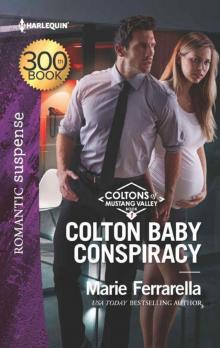 Colton Baby Conspiracy (The Coltons 0f Mustang Valley Book 1)
Colton Baby Conspiracy (The Coltons 0f Mustang Valley Book 1)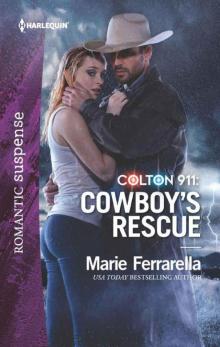 Cowboy's Rescue (Colton 911 Book 1)
Cowboy's Rescue (Colton 911 Book 1) Bridesmaid For Hire (Matchmaking Mamas Book 23)
Bridesmaid For Hire (Matchmaking Mamas Book 23) Secrets of Forever
Secrets of Forever Fortune's Greatest Risk (The Fortunes 0f Texas: Rambling Rose Book 4)
Fortune's Greatest Risk (The Fortunes 0f Texas: Rambling Rose Book 4) Cavanaugh Cowboy
Cavanaugh Cowboy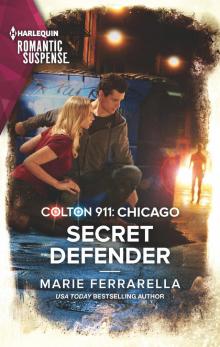 Colton 911: Secret Defender
Colton 911: Secret Defender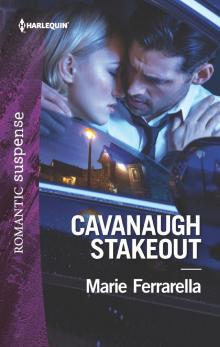 Cavanaugh Stakeout
Cavanaugh Stakeout The Late Bloomer's Road to Love
The Late Bloomer's Road to Love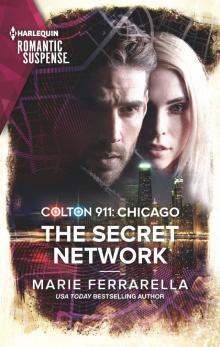 Colton 911--The Secret Network
Colton 911--The Secret Network An Unexpected Father
An Unexpected Father The Lawman's Romance Lesson (Forever, Tx. Series Book 20)
The Lawman's Romance Lesson (Forever, Tx. Series Book 20) Coming to a Crossroads
Coming to a Crossroads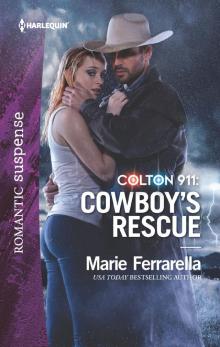 Colton 911: Cowboy's Rescue
Colton 911: Cowboy's Rescue Summer of Love
Summer of Love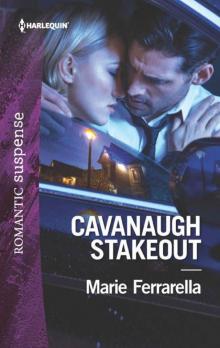 Cavanaugh Stakeout (Cavanaugh Justice Book 41)
Cavanaugh Stakeout (Cavanaugh Justice Book 41) Texan Seeks Fortune
Texan Seeks Fortune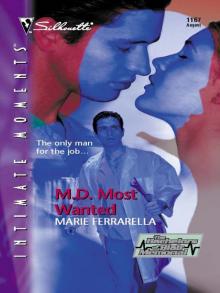 M.D. Most Wanted
M.D. Most Wanted Cavanaugh In Plain Sight (Cavanaugh Justice Book 42)
Cavanaugh In Plain Sight (Cavanaugh Justice Book 42)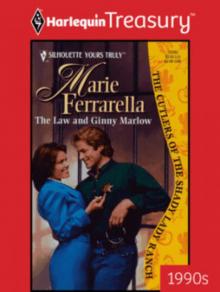 The Law and Ginny Marlow
The Law and Ginny Marlow Bridesmaid for Hire
Bridesmaid for Hire A Match for the Doctor
A Match for the Doctor The Sheriff’s Christmas Surprise
The Sheriff’s Christmas Surprise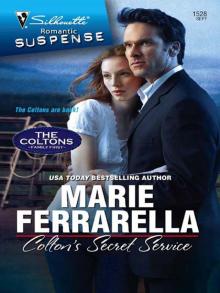 Colton's Secret Service
Colton's Secret Service A WEDDING FOR CHRISTMAS
A WEDDING FOR CHRISTMAS A Cavanaugh Christmas
A Cavanaugh Christmas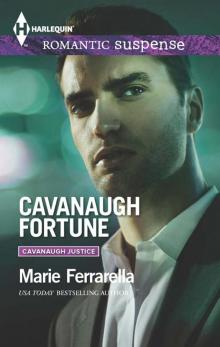 Cavanaugh Fortune
Cavanaugh Fortune The 39-Year-Old Virgin
The 39-Year-Old Virgin Coming To A Crossroads (Matchmaking Mamas Book 24)
Coming To A Crossroads (Matchmaking Mamas Book 24)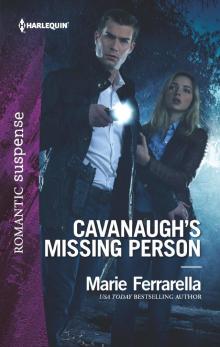 Cavanaugh's Missing Person
Cavanaugh's Missing Person Cavanaugh on Call
Cavanaugh on Call The M.D.'s Surprise Family
The M.D.'s Surprise Family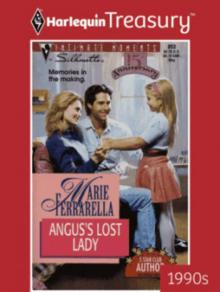 Angus's Lost Lady
Angus's Lost Lady Her Red-Carpet Romance
Her Red-Carpet Romance Choices (A Woman's Life)
Choices (A Woman's Life) Prescription for Romance
Prescription for Romance A Perfectly Imperfect Match (Matchmaking Mamas)
A Perfectly Imperfect Match (Matchmaking Mamas)![[Kate's Boys 04] - Travis's Appeal Read online](http://i1.bookreadfree.com/i/03/21/kates_boys_04_-_traviss_appeal_preview.jpg) [Kate's Boys 04] - Travis's Appeal
[Kate's Boys 04] - Travis's Appeal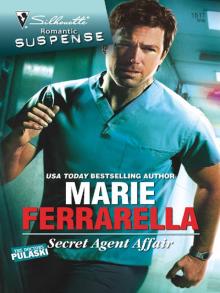 Secret Agent Affair
Secret Agent Affair The Cowboy's Lesson in Love
The Cowboy's Lesson in Love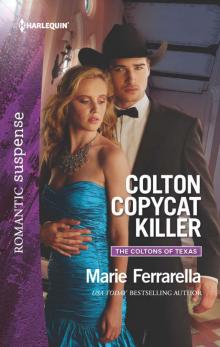 Colton Copycat Killer
Colton Copycat Killer A Small Fortune
A Small Fortune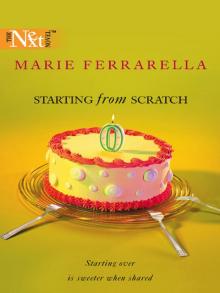 Starting from Scratch
Starting from Scratch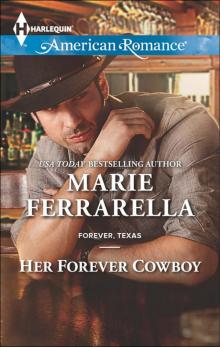 Her Forever Cowboy
Her Forever Cowboy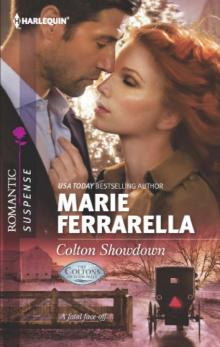 Colton Showdown
Colton Showdown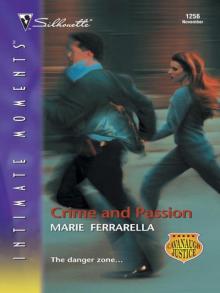 Crime and Passion
Crime and Passion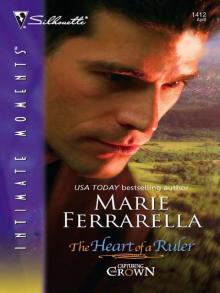 The Heart of a Ruler
The Heart of a Ruler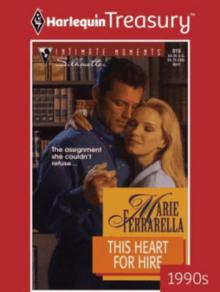 This Heart for Hire
This Heart for Hire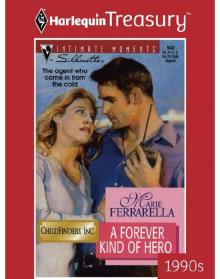 A Forever Kind of Hero
A Forever Kind of Hero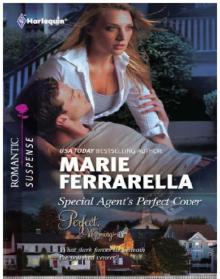 Special Agent's Perfect Cover
Special Agent's Perfect Cover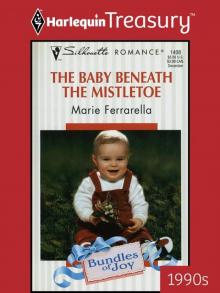 The Baby Beneath the Mistletoe
The Baby Beneath the Mistletoe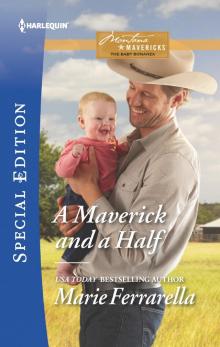 A Maverick and a Half
A Maverick and a Half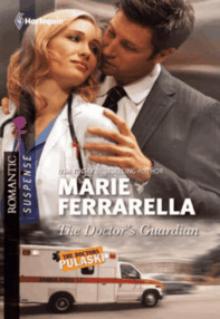 The Doctor's Guardian
The Doctor's Guardian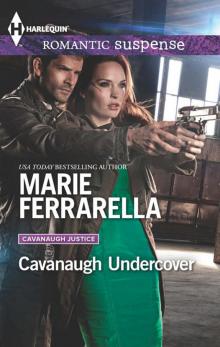 Cavanaugh Undercover
Cavanaugh Undercover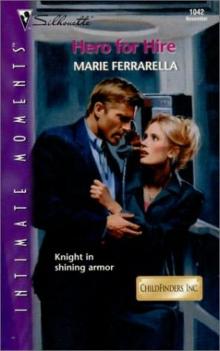 Hero for Hire
Hero for Hire Fortune's Heirs: Reunion
Fortune's Heirs: Reunion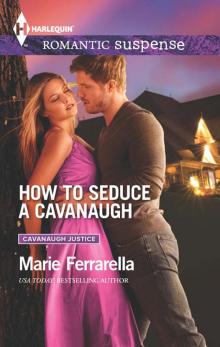 How to Seduce a Cavanaugh
How to Seduce a Cavanaugh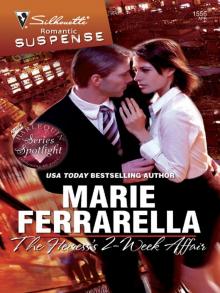 The Heiress’s 2-Week Affair
The Heiress’s 2-Week Affair Twice a Hero, Always Her Man
Twice a Hero, Always Her Man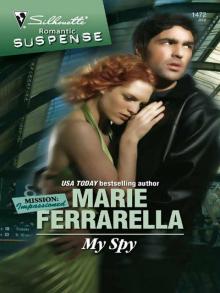 My Spy
My Spy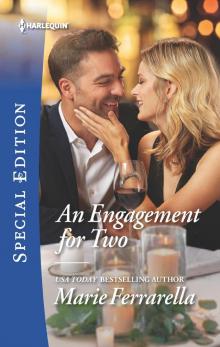 An Engagement for Two
An Engagement for Two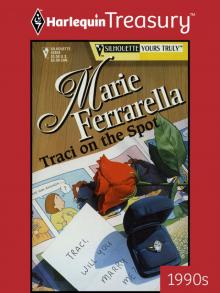 Traci On The Spot
Traci On The Spot Carrying His Secret
Carrying His Secret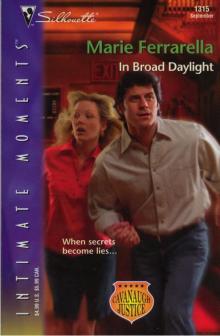 In Broad Daylight
In Broad Daylight Cavanaugh Cold Case
Cavanaugh Cold Case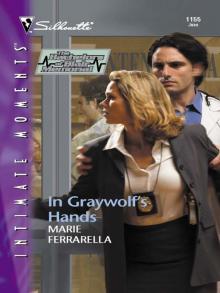 In Graywolf’s Hands
In Graywolf’s Hands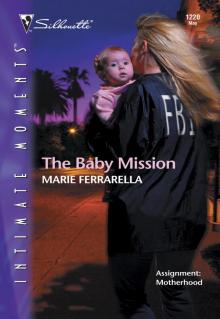 The Baby Mission
The Baby Mission Real Vintage Maverick
Real Vintage Maverick Twins on the Doorstep
Twins on the Doorstep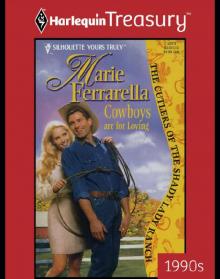 Cowboys Are For Loving
Cowboys Are For Loving Heart of a Hero
Heart of a Hero The Cowboy's Christmas Surprise
The Cowboy's Christmas Surprise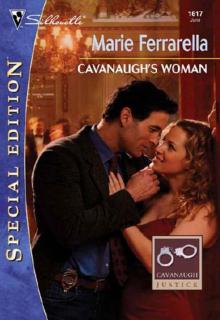 Cavanaugh’s Woman
Cavanaugh’s Woman Sundays Are for Murder
Sundays Are for Murder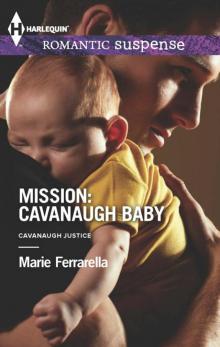 Mission: Cavanaugh Baby
Mission: Cavanaugh Baby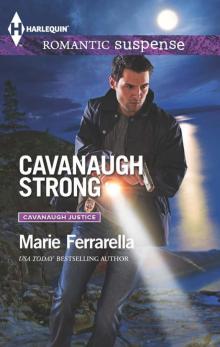 Cavanaugh Strong
Cavanaugh Strong Wish Upon a Matchmaker
Wish Upon a Matchmaker Dangerous Games
Dangerous Games What the Single Dad Wants...
What the Single Dad Wants... Rough Around the Edges
Rough Around the Edges Cavanaugh Judgment
Cavanaugh Judgment Cavanaugh Watch
Cavanaugh Watch Cavanaugh's Secret Delivery
Cavanaugh's Secret Delivery The Pregnant Colton Bride
The Pregnant Colton Bride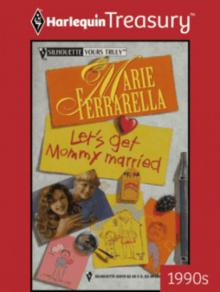 Let's Get Mommy Married
Let's Get Mommy Married Searching for Cate
Searching for Cate A Forever Christmas
A Forever Christmas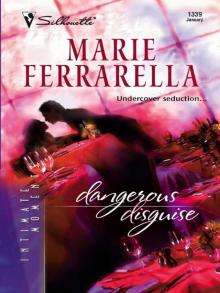 Dangerous Disguise
Dangerous Disguise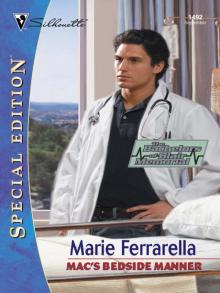 Mac’s Bedside Manner
Mac’s Bedside Manner Cavanaugh Pride
Cavanaugh Pride The Fortune Most Likely To...
The Fortune Most Likely To...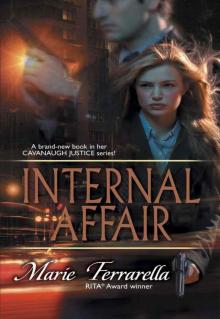 Internal Affair
Internal Affair A Second Chance for the Single Dad
A Second Chance for the Single Dad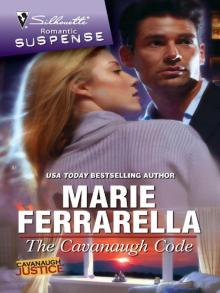 The Cavanaugh Code
The Cavanaugh Code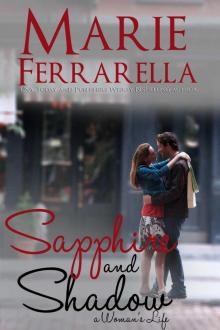 Sapphire and Shadow (A Woman's Life)
Sapphire and Shadow (A Woman's Life)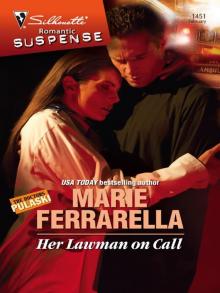 Her Lawman on Call
Her Lawman on Call A Dad At Last
A Dad At Last Her Right-Hand Cowboy (Forever, Tx Series Book 21)
Her Right-Hand Cowboy (Forever, Tx Series Book 21)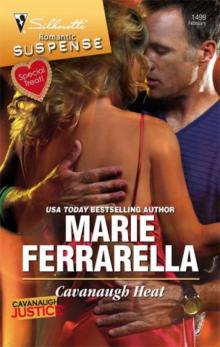 Cavanaugh Heat
Cavanaugh Heat![[Ladera by the Sea 01] - A Wedding for Christmas Read online](http://i1.bookreadfree.com/i1/03/27/ladera_by_the_sea_01_-_a_wedding_for_christmas_preview.jpg) [Ladera by the Sea 01] - A Wedding for Christmas
[Ladera by the Sea 01] - A Wedding for Christmas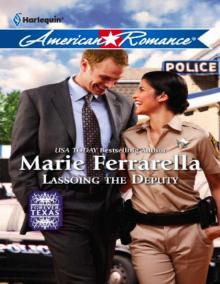 Lassoing the Deputy
Lassoing the Deputy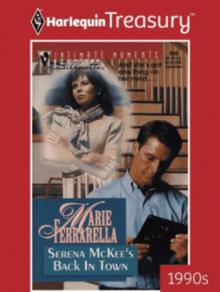 Serena Mckee's Back In Town
Serena Mckee's Back In Town A Baby on the Ranch: A Baby on the RanchRamona and the Renegade
A Baby on the Ranch: A Baby on the RanchRamona and the Renegade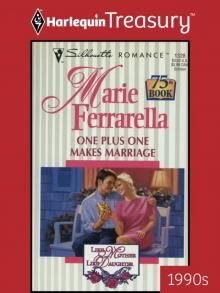 One Plus One Makes Marriage
One Plus One Makes Marriage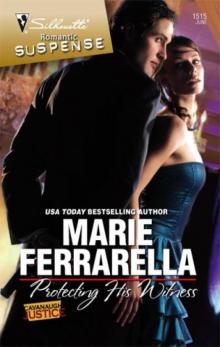 Protecting His Witness
Protecting His Witness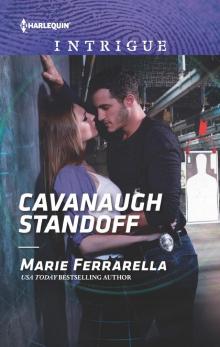 Cavanaugh Standoff
Cavanaugh Standoff The Baby Came C.O.D.
The Baby Came C.O.D.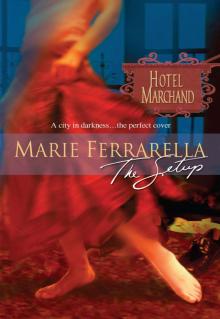 The Setup
The Setup Texas Rose
Texas Rose Three Marie Ferrarella Romances Box Set One
Three Marie Ferrarella Romances Box Set One The Lawman's Romance Lesson
The Lawman's Romance Lesson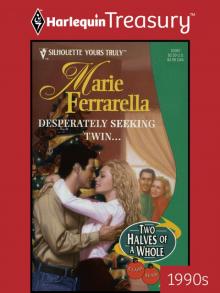 Desperately Seeking Twin...
Desperately Seeking Twin...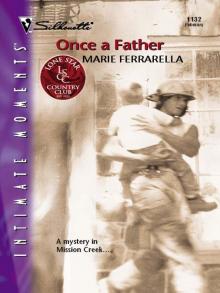 Once a Father
Once a Father![[The Sons of Lily Moreau 02] - Taming the Playboy Read online](http://i1.bookreadfree.com/i/03/25/the_sons_of_lily_moreau_02_-_taming_the_playboy_preview.jpg) [The Sons of Lily Moreau 02] - Taming the Playboy
[The Sons of Lily Moreau 02] - Taming the Playboy Lily and the Lawman
Lily and the Lawman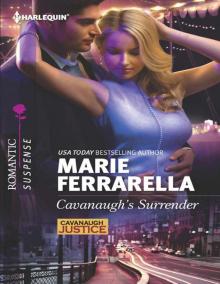 Cavanaugh's Surrender
Cavanaugh's Surrender The Cowboy and the Lady
The Cowboy and the Lady Innkeeper's Daughter
Innkeeper's Daughter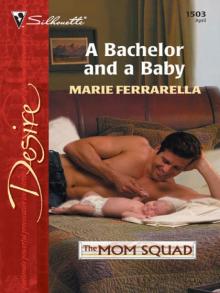 A Bachelor and a Baby
A Bachelor and a Baby![[The Sons of Lily Moreau 03] - Capturing the Millionaire Read online](http://i1.bookreadfree.com/i1/03/31/the_sons_of_lily_moreau_03_-_capturing_the_millionaire_preview.jpg) [The Sons of Lily Moreau 03] - Capturing the Millionaire
[The Sons of Lily Moreau 03] - Capturing the Millionaire Because a Husband Is Forever
Because a Husband Is Forever Diamond in the Rough
Diamond in the Rough The Doctor's Forever Family
The Doctor's Forever Family A Lawman for Christmas
A Lawman for Christmas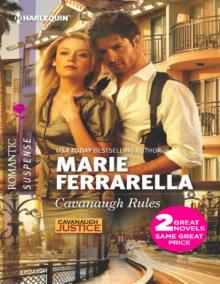 Cavanaugh Rules: Cavanaugh RulesCavanaugh Reunion
Cavanaugh Rules: Cavanaugh RulesCavanaugh Reunion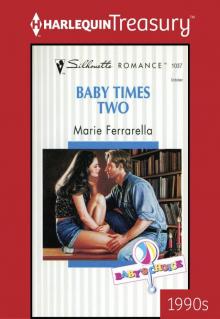 Baby Times Two
Baby Times Two![[The Sons of Lily Moreau 01] - Remodeling the Bachelor Read online](http://i1.bookreadfree.com/i1/04/02/the_sons_of_lily_moreau_01_-_remodeling_the_bachelor_preview.jpg) [The Sons of Lily Moreau 01] - Remodeling the Bachelor
[The Sons of Lily Moreau 01] - Remodeling the Bachelor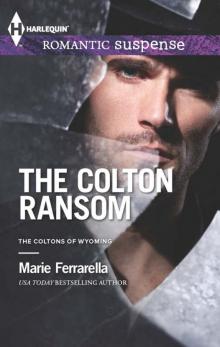 The Colton Ransom
The Colton Ransom Mendoza's Secret Fortune
Mendoza's Secret Fortune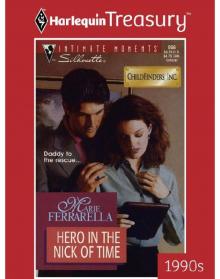 Hero in the Nick of Time
Hero in the Nick of Time![[Kate's Boys 03] - Mistletoe and Miracles Read online](http://i1.bookreadfree.com/i1/04/02/kates_boys_03_-_mistletoe_and_miracles_preview.jpg) [Kate's Boys 03] - Mistletoe and Miracles
[Kate's Boys 03] - Mistletoe and Miracles The Man Who Would Be Daddy
The Man Who Would Be Daddy Fortune's Second-Chance Cowboy
Fortune's Second-Chance Cowboy Coming Home for Christmas
Coming Home for Christmas Her Special Charm
Her Special Charm The Baby Wore a Badge
The Baby Wore a Badge Perfect Wyoming Complete Collection: Special Agent's Perfect Cover ; Rancher's Perfect Baby Rescue ; A Daughter's Perfect Secret ; Lawman's Perfect Surrender ; The Perfect Outsider ; Mercenary's Perfect Mission
Perfect Wyoming Complete Collection: Special Agent's Perfect Cover ; Rancher's Perfect Baby Rescue ; A Daughter's Perfect Secret ; Lawman's Perfect Surrender ; The Perfect Outsider ; Mercenary's Perfect Mission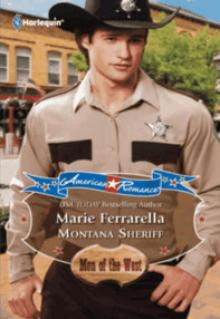 Montana Sheriff
Montana Sheriff Fiona And The Sexy Stranger
Fiona And The Sexy Stranger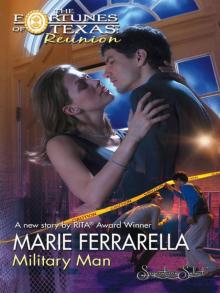 Military Man
Military Man Dating for Two (Matchmaking Mamas)
Dating for Two (Matchmaking Mamas) Cavanaugh Encounter
Cavanaugh Encounter In His Protective Custody
In His Protective Custody A Small Town Thanksgiving
A Small Town Thanksgiving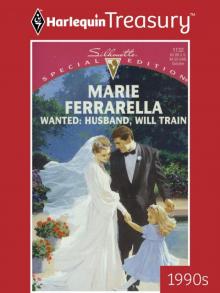 Wanted: Husband, Will Train
Wanted: Husband, Will Train Suddenly...Marriage!
Suddenly...Marriage! Plain Jane and the Playboy
Plain Jane and the Playboy Private Justice
Private Justice The Strong Silent Type
The Strong Silent Type Christmas Cowboy Duet
Christmas Cowboy Duet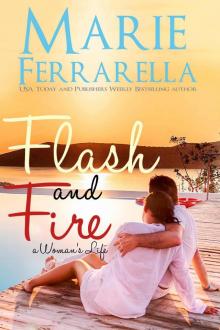 Flash and Fire
Flash and Fire Colton by Marriage
Colton by Marriage Fortune's Valentine Bride
Fortune's Valentine Bride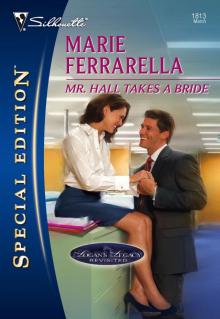 Mr. Hall Takes a Bride
Mr. Hall Takes a Bride Her Good Fortune
Her Good Fortune The Disenchanted Duke
The Disenchanted Duke Beauty and the Baby
Beauty and the Baby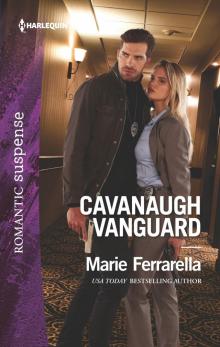 Cavanaugh Vanguard
Cavanaugh Vanguard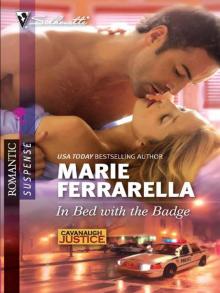 In Bed with the Badge
In Bed with the Badge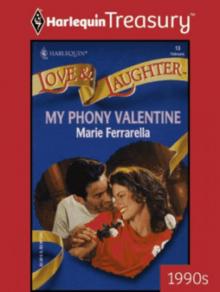 My Phony Valentine
My Phony Valentine The Rancher and the Baby
The Rancher and the Baby Immovable Objects
Immovable Objects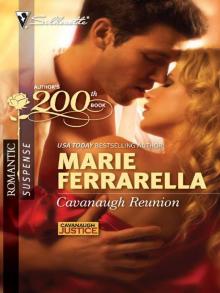 Cavanaugh Reunion
Cavanaugh Reunion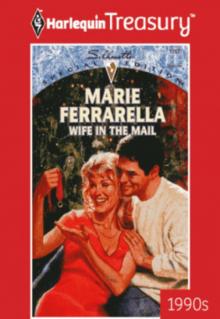 Wife in the Mail
Wife in the Mail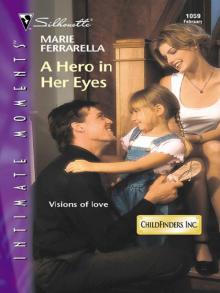 A Hero in Her Eyes
A Hero in Her Eyes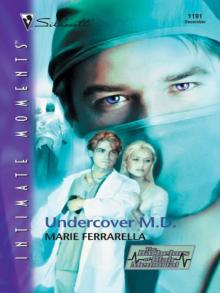 Undercover M.D.
Undercover M.D.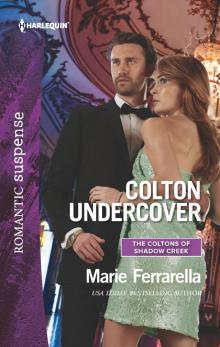 Colton Undercover
Colton Undercover Found: His Perfect Wife
Found: His Perfect Wife Dr. Forget-Me-Not (Matchmaking Mamas)
Dr. Forget-Me-Not (Matchmaking Mamas) Loving the Right Brother
Loving the Right Brother Holiday in a Stetson: The Sheriff Who Found ChristmasA Rancho Diablo Christmas
Holiday in a Stetson: The Sheriff Who Found ChristmasA Rancho Diablo Christmas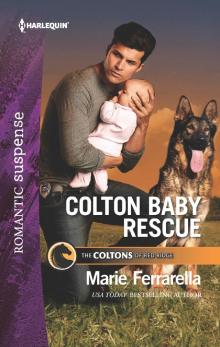 Colton Baby Rescue
Colton Baby Rescue Baby's First Christmas
Baby's First Christmas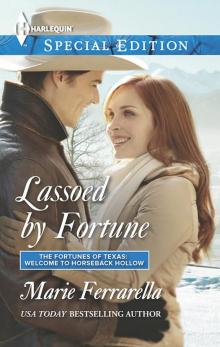 LASSOED BY FORTUNE
LASSOED BY FORTUNE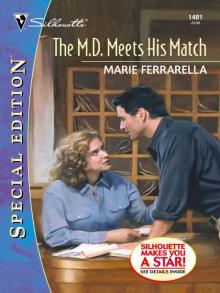 The M.D. Meets His Match
The M.D. Meets His Match A Baby for Christmas
A Baby for Christmas His Forever Valentine
His Forever Valentine The Inheritance
The Inheritance The Woman Who Wasn't There
The Woman Who Wasn't There![[Kate's Boys 05] - A Lawman for Christmas Read online](http://i1.bookreadfree.com/i2/04/09/kates_boys_05_-_a_lawman_for_christmas_preview.jpg) [Kate's Boys 05] - A Lawman for Christmas
[Kate's Boys 05] - A Lawman for Christmas Husbands and Other Strangers
Husbands and Other Strangers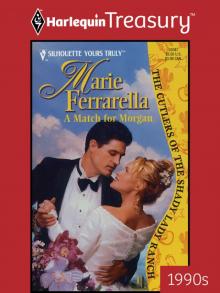 A Match for Morgan
A Match for Morgan The Doctor's Guardian & Tempted By His Target
The Doctor's Guardian & Tempted By His Target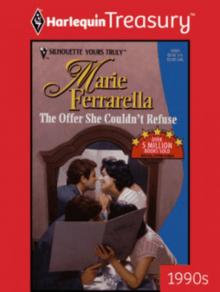 The Offer She Couldn't Refuse
The Offer She Couldn't Refuse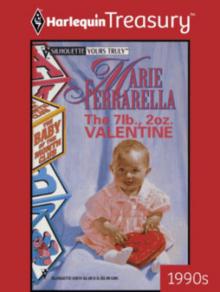 The 7 Lb., 2 Oz. Valentine
The 7 Lb., 2 Oz. Valentine Fixed Up with Mr. Right?
Fixed Up with Mr. Right?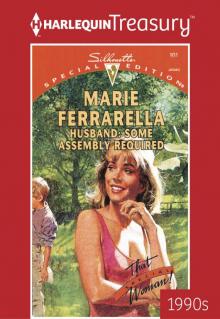 Husband: Some Assembly Required
Husband: Some Assembly Required Adding Up to Family
Adding Up to Family Cavanaugh or Death
Cavanaugh or Death Unwrapping the Playboy
Unwrapping the Playboy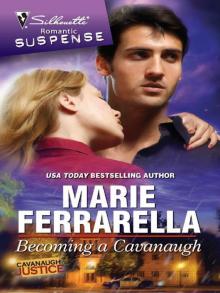 Becoming a Cavanaugh
Becoming a Cavanaugh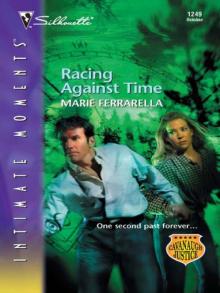 Racing Against Time
Racing Against Time Christmastime Courtship
Christmastime Courtship A Billionaire and a Baby
A Billionaire and a Baby Ten Years Later...
Ten Years Later...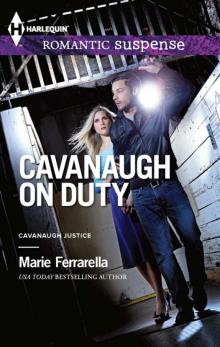 Cavanaugh on Duty
Cavanaugh on Duty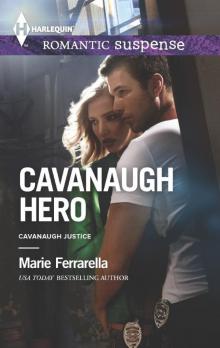 Cavanaugh Hero
Cavanaugh Hero Finding Happily-Ever-After
Finding Happily-Ever-After The Prodigal M.D. Returns
The Prodigal M.D. Returns Mendoza's Secret Fortune (The Fortunes of Texas: Cowboy Country)
Mendoza's Secret Fortune (The Fortunes of Texas: Cowboy Country)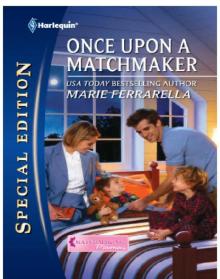 Once Upon a Matchmaker
Once Upon a Matchmaker Diamond in the Ruff (Matchmaking Mamas Book 13)
Diamond in the Ruff (Matchmaking Mamas Book 13) Fortune's Just Desserts
Fortune's Just Desserts![[Kate's Boys 02] - The Bride With No Name Read online](http://i1.bookreadfree.com/i2/04/10/kates_boys_02_-_the_bride_with_no_name_preview.jpg) [Kate's Boys 02] - The Bride With No Name
[Kate's Boys 02] - The Bride With No Name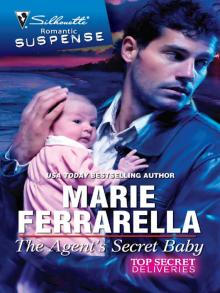 The Agent's Secret Baby
The Agent's Secret Baby Doctoring the Single Dad
Doctoring the Single Dad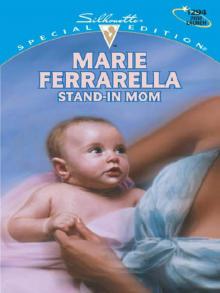 Stand-In Mom
Stand-In Mom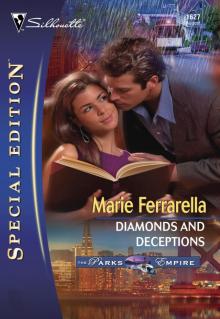 Diamonds and Deceptions
Diamonds and Deceptions The Bride Wore Blue Jeans
The Bride Wore Blue Jeans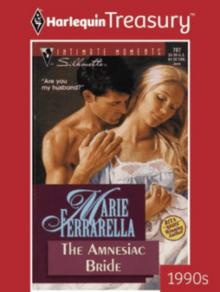 The Amnesiac Bride
The Amnesiac Bride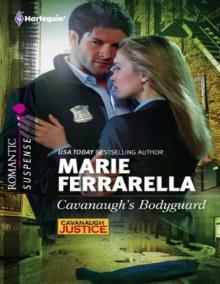 Cavanaugh's Bodyguard
Cavanaugh's Bodyguard Brooding Angel
Brooding Angel The Once and Future Father
The Once and Future Father Cavanaugh in the Rough
Cavanaugh in the Rough Mother in Training
Mother in Training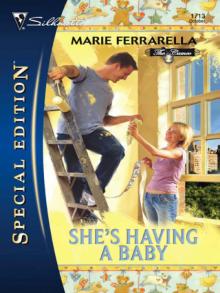 She’s Having a Baby
She’s Having a Baby Never Too Late For Love
Never Too Late For Love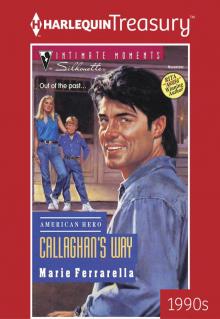 Callaghan's Way
Callaghan's Way Happy New Year--Baby!
Happy New Year--Baby!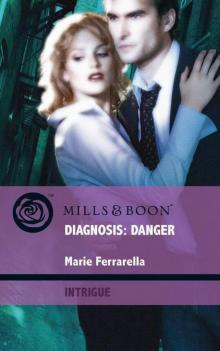 Diagnosis: Danger
Diagnosis: Danger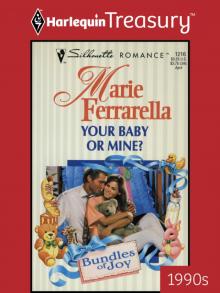 Your Baby Or Mine?
Your Baby Or Mine? The Maverick's Return
The Maverick's Return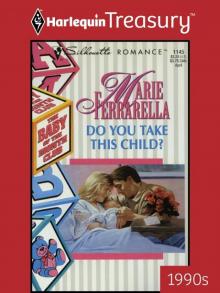 Do You Take This Child?
Do You Take This Child? The Women in Joe Sullivan's Life
The Women in Joe Sullivan's Life The Second Time Around
The Second Time Around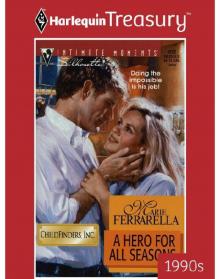 A Hero for All Seasons
A Hero for All Seasons